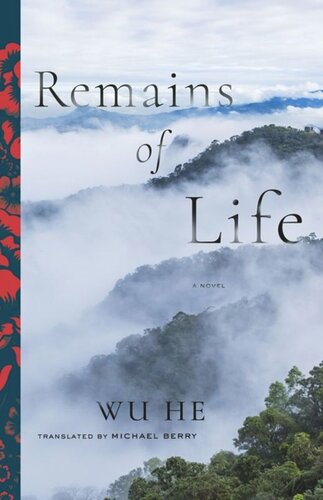

Most ebook files are in PDF format, so you can easily read them using various software such as Foxit Reader or directly on the Google Chrome browser.
Some ebook files are released by publishers in other formats such as .awz, .mobi, .epub, .fb2, etc. You may need to install specific software to read these formats on mobile/PC, such as Calibre.
Please read the tutorial at this link: https://ebookbell.com/faq
We offer FREE conversion to the popular formats you request; however, this may take some time. Therefore, right after payment, please email us, and we will try to provide the service as quickly as possible.
For some exceptional file formats or broken links (if any), please refrain from opening any disputes. Instead, email us first, and we will try to assist within a maximum of 6 hours.
EbookBell Team

5.0
100 reviewsIn 1930, in the mountains of Taiwan, the Atayal tribe rose up against the Japanese colonial regime. The Japanese response brought the tribe to the brink of genocide. Wu He investigates the atrocity in this milestone of Chinese experimental literature. Shifting among observations about the people the author meets, philosophical musings, and fantastical leaps of imagination, Remains of Life is a powerful literary reckoning with one of the darkest chapters in Taiwan's colonial history.
On October 27, 1930, during a sports meet at Musha Elementary School on an aboriginal reservation in the mountains of Taiwan, a bloody uprising occurred unlike anything Japan had experienced in its colonial history. Before noon, the Atayal tribe had slain one hundred and thirty-four Japanese in a headhunting ritual. The Japanese responded with a militia of three thousand, heavy artillery, airplanes, and internationally banned poisonous gas, bringing the tribe to the brink of genocide.
Nearly seventy years later, Chen Guocheng, a writer known as Wu He, or "Dancing Crane," investigated the Musha Incident to search for any survivors and their descendants. Remains of Life, a milestone of Chinese experimental literature, is a fictionalized account of the writer's experiences among the people who live their lives in the aftermath of this history. Written in a stream-of-consciousness style, it contains no paragraph breaks and only a handful of sentences. Shifting among observations about the people the author meets, philosophical musings, and fantastical leaps of imagination, Remains of Life is a powerful literary reckoning with one of the darkest chapters in Taiwan's colonial history.